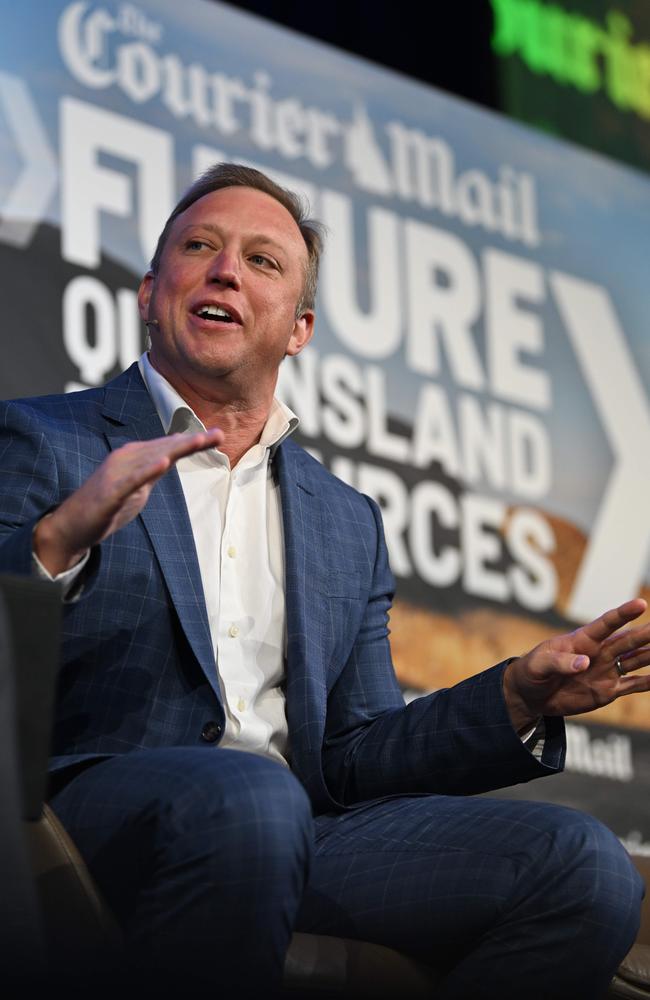Future Qld Resources: Steven Miles’ concession on royalties
Premier Steven Miles has made a stunning confession over the lack of consultation with the resources industry over royalty changes.
QLD Politics
Don't miss out on the headlines from QLD Politics. Followed categories will be added to My News.
A lack of consultation with the mining industry over controversial royalty changes was done to control the timing of public discussion, Premier Steven Miles has conceded.
It comes as the head of a mining company revealed he had to fire 300 employees due to the royalty hike, while also funnelling two-thirds of its operating margin toward government taxes.
Mr Miles, speaking at The Courier-Mail’s Future Resources event on Friday, revealed cabinet had taken advice from Queensland Treasury in 2022 on all the likely implications of the royalty changes, including the “sheer volume of profits” being made amid sky-high coal prices.
This story is part of The Courier-Mail’s special Future Queensland: Resources series that reveals the truth about the contribution the much-maligned resources industry makes to Queensland.
The series is supported by Bravus, Whitehaven Coal, Queensland Resources Council, the Queensland Government, Senex, Coal Australia and Australian Energy Producers. You can read all of our coverage here
But the state government had not consulted more widely due to the need to control the timing.
“Sometimes governments have to make decisions that they need to be able to control the timing of its public discussion,” Mr Miles said.
“There are necessarily times where you need to be able to announce it before it can be widely discussed. I suspect that was the focus of this particular (policy).”
Treasurer Cameron Dick’s controversial royalties increase – which made Queensland the highest coal taxing state in the world – has helped rake in a whopping $25bn from coal in the past two years.

Mr Miles said the cash raked in from royalty changes had ensured Queensland was able to continue investing in infrastructure across the state, in contrast to NSW and Victoria, which have been forced to slash projects.
Bowen Coking Coal chief executive Nick Jorss said consequences of the royalty changes included the company being forced to fire 300 employees.
Meanwhile 62 per cent of its operating margin was being funnelled into government taxes.
“It was very painful for us as a company and our team, it was very painful for our shareholders, and painful for the three other people we had to put out of work,” he said.
Mr Miles also defended the need for environmental regulation, saying one person’s green tape was another’s responsible environmental regulation designed to protect out land and water.
“This is a perspective thing,” Mr Miles said.
“We shouldn’t underestimate the value of our social licence and of our global reputation for having safe, environmentally sustainable mining.
“Those regulations are what helps us hold those two things.”
The impact of green tape was highlighted by Bravus executive director Samir Vora, who described the near-decade-long journey to get the Carmichael coalmine approved as a difficult, challenging and “quite painful” journey filled with drama.
Queensland Resources Council CEO Janette Hewson said she had spent most of her career trying to get project approvals, and ultimately it was about politicians getting the settings right.





